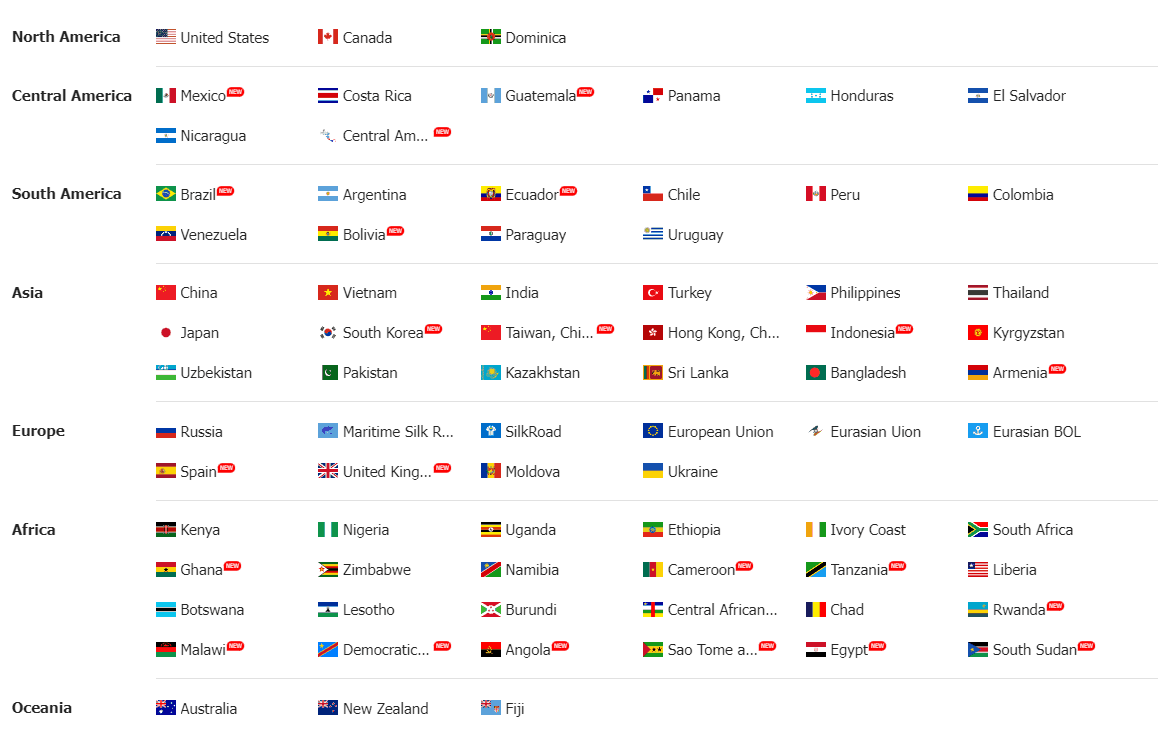 Trade Data
Trade Data
 21-08-2024
21-08-2024
Argentina, a major economy in South America, plays a significant role in global trade. While the country is well-known for its agricultural exports, imports are equally critical in shaping its economic landscape. Understanding Argentina's import data provides valuable insights into the country's economic needs, consumer preferences, and industrial demands.

Overview of Argentina's Imports
Argentina imports a wide range of products, primarily to meet the demands of its population and to support its industrial sector. The country’s import market is driven by the need for machinery, electronics, vehicles, chemicals, and fuels, among other commodities. In recent years, Argentina has faced economic challenges, including inflation and currency volatility, which have impacted its import patterns. However, imports remain a vital component of Argentina's economy.
Key Commodities Imported by Argentina
Machinery and Equipment: A significant portion of Argentina's imports consists of machinery, including computers, industrial machinery, and telecommunications equipment. These imports are essential for Argentina’s manufacturing sector and infrastructure development.
Vehicles and Automotive Parts: Argentina imports a considerable amount of vehicles, particularly passenger cars and trucks. Additionally, the country imports automotive parts to support its domestic automobile industry, which is a significant contributor to its economy.
Chemicals: Argentina imports a variety of chemicals, including pharmaceuticals, fertilizers, and industrial chemicals. These imports are crucial for its agricultural sector, healthcare system, and manufacturing industries.
Fuels and Mineral Oils: Although Argentina is an oil-producing country, it still imports refined petroleum products and natural gas to meet its energy demands. These imports are critical for powering industries and supporting transportation needs.
Consumer Goods: Argentina also imports a range of consumer goods, such as electronics, clothing, and household items. These goods cater to the diverse needs and preferences of the Argentine population.
Major Trading Partners
Argentina's import relationships are primarily with countries that supply the key commodities it needs. Some of the top trading partners include:
Brazil: Argentina's largest trading partner, Brazil, supplies vehicles, machinery, and chemicals.
China: A significant source of electronics, machinery, and consumer goods for Argentina.
United States: The U.S. exports machinery, chemicals, and electronics to Argentina, playing a crucial role in its import market.
Germany: Known for its high-quality machinery and automotive parts, Germany is a key supplier to Argentina’s industrial sector.
Trends in Argentina’s Import Data
In recent years, Argentina’s import trends have been influenced by various factors, including economic policies, global market conditions, and domestic demand. The government’s efforts to stabilize the economy and control inflation have impacted the volume and value of imports. Additionally, global supply chain disruptions, particularly during the COVID-19 pandemic, have affected Argentina’s ability to import certain goods.
Another trend is the increasing diversification of import sources. While Argentina continues to rely heavily on traditional partners like Brazil, China, and the U.S., it has been exploring new markets to reduce dependency and secure more favorable trade terms.
Challenges and Opportunities
Argentina faces several challenges in managing its imports, including currency depreciation, which makes imports more expensive, and trade barriers that can limit access to foreign goods. However, there are also opportunities for growth, particularly in sectors like renewable energy, where Argentina could import advanced technology to boost its green energy initiatives.
Furthermore, Argentina’s participation in regional trade agreements, such as Mercosur, presents opportunities to strengthen trade relationships and improve access to critical imports.
Conclusion
Argentina's import data reveals a complex and dynamic aspect of its economy. While the country has faced economic challenges, its import market remains vital for supporting industrial growth and meeting consumer needs. By analyzing import trends and exploring new opportunities, Argentina can continue to navigate the global trade landscape and enhance its economic resilience.
Tendata iTrader compiles trade data from 218 countries and provides detailed information on over 130 million import-export enterprises worldwide.
With a daily influx of 10 billion trade records, Tendata efficiently delivers contact details for over 700 million top-level executives and decision-makers in the import-export industry through advanced filtering. This includes email addresses, phone numbers, social media profiles, and more. Additionally, we offer synchronized company profiles, product images, and website links, along with 19 types of visual reports. These tools assist foreign trade enterprises in precise market positioning and thorough market analysis, enabling you to quickly find the exact buyers and suppliers you need.
(>> Visit the Official Shanghai Tendata Website for More Details <<)

Category
Leave Message for Demo Request or Questions


 T-info
T-info T-discovery
T-discovery

 My
Tendata
My
Tendata Market Analysis
Market Analysis Customer
Development
Customer
Development Competitor
Monitoring
Competitor
Monitoring Customer Relationship
Customer Relationship




































































































































